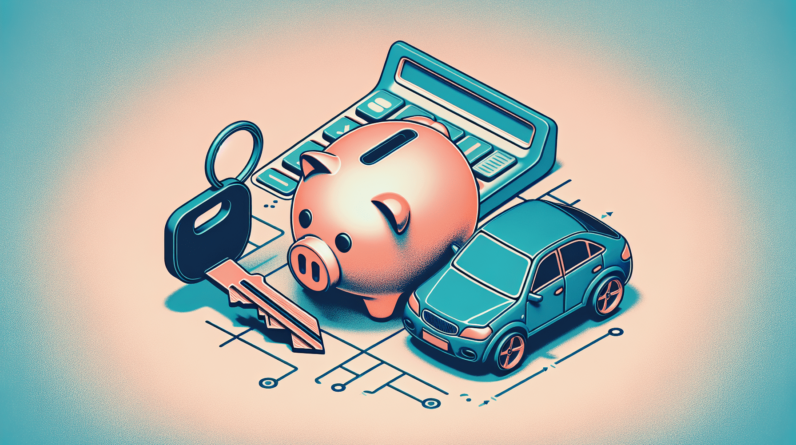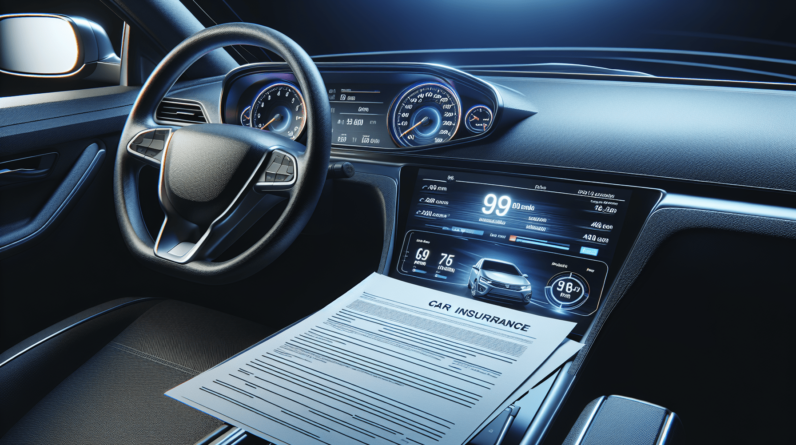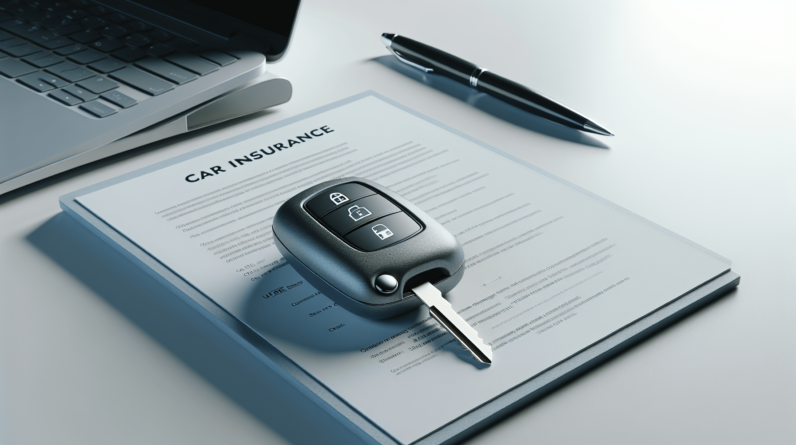
Have you ever wondered how long your insurance will cover the cost of a rental car after an accident? We all hope to never find ourselves in that situation, but accidents happen. In this article, we will explore the timeframe during which your insurance will cover the cost of a rental car, ensuring peace of mind and helping you understand what to expect during the aftermath of an accident. So, let’s dive in and shed some light on this commonly asked question.
Insurance Coverage for Rental Cars
Understanding Insurance Coverage
When it comes to renting a car, understanding the insurance coverage provided is essential for peace of mind and financial protection. Rental car companies typically offer various insurance policies that you can purchase to ensure you are adequately covered in case of an accident or damage to the rental vehicle. However, it is important to know the extent of coverage and any limitations that may apply.
Rental Car Insurance Policies
Most rental car companies offer three main types of insurance coverage: Loss Damage Waiver (LDW), Supplemental Liability Insurance (SLI), and Personal Accident Insurance (PAI). LDW covers the cost of damage to the rental vehicle, SLI provides coverage for damage to another person’s property, and PAI covers medical expenses if you or your passengers are injured in an accident. It is crucial to carefully review the terms and conditions of each policy and determine which ones suit your needs best.
Insurance Coverage for Accident Parties
In the unfortunate event of an accident, understanding how insurance coverage applies to all involved parties is crucial. If you are at fault in an accident while driving a rental car, your insurance coverage will typically be responsible for damages to the other vehicle and any injuries sustained by the other party. However, it is essential to consult your insurance provider to confirm the specifics of your coverage.
Insurance Coverage Limitations
While rental car insurance policies provide coverage, it is important to be aware of any limitations that may apply. Common limitations include deductibles, exclusions for certain types of vehicles, and restrictions on driving outside specified areas. It is highly recommended to go through the terms and conditions of your rental car insurance policy to fully understand the extent and limitations of your coverage.

Duration of Rental Car Coverage
Initial Period of Coverage
The initial period of coverage for a rental car typically starts from the moment you pick up the vehicle until the agreed-upon return time. This means that any accidents or damages that occur during this period will be covered by the insurance policy you have purchased from the rental car company. It is crucial to know the exact duration of this initial coverage to ensure you are protected throughout your rental period.
Extent of Coverage
During the initial coverage period, your insurance policy should provide comprehensive coverage for damages to the rental vehicle, liability for damages to third-party property, and coverage for potential medical expenses resulting from an accident. This coverage usually extends to include collisions, theft, vandalism, and other unforeseen events. However, it is essential to review your policy to confirm the specific types of incidents covered.
Coverage Limitations
While the extent of coverage during the initial period is comprehensive, it is important to be aware of any limitations that may apply. Some rental car insurance policies may have specific coverage limits, such as a maximum dollar amount for repairs or a cap on medical expense reimbursements. Reviewing these limitations will help you understand the potential out-of-pocket costs you may incur in the event of an accident.
Potential Extension Options
If you require the rental car for a longer period than initially planned, it may be possible to extend your coverage. Rental car companies usually offer extension options, allowing you to continue the insurance coverage beyond the initial period. However, additional costs may apply, and it is necessary to contact the rental car company or your insurance provider to arrange this extension and confirm the updated coverage terms.
Claim Process and Communication
Documenting the Accident
In the unfortunate event of an accident, it is crucial to document the incident thoroughly. Take photos of the damage to all vehicles involved, gather contact information from any witnesses, and file a police report if necessary. These documents will help support your insurance claim and ensure a smooth claim process.
Contacting Insurance Provider
After documenting the accident, it is essential to contact your insurance provider as soon as possible. Provide them with all the relevant information and details about the accident. Your insurance provider will guide you through the next steps and initiate the claim process on your behalf.
Providing Necessary Information
When contacting your insurance provider, be prepared to provide them with specific information about the rental car, the accident, and any other parties involved. This may include the rental car agreement number, your policy details, the date and location of the accident, and the contact information of the other party (if applicable). By providing accurate and detailed information, you will help expedite the claim process.
Claim Investigation Process
Once your insurance provider receives your claim, they will initiate an investigation into the accident. This investigation typically involves reviewing the provided documentation, speaking with any involved parties, and assessing the liability and potential coverage under your policy. The length of the investigation process can vary, but your insurance provider will keep you informed about the progress and any updates regarding your claim.
Reimbursement and Rental Car Costs
Reimbursement Policies
If your rental car is involved in an accident and requires repairs, you may be eligible for reimbursement for the cost of the repairs. However, reimbursements are subject to the terms of your insurance policy. Some policies may require you to pay a deductible before receiving reimbursement, while others may cover the full cost of repairs. Review your policy carefully to understand your reimbursement eligibility and any associated costs.
Rental Car Costs
During the period your rental car is being repaired, you may still need transportation. In many cases, rental car insurance policies offer coverage for the cost of a temporary replacement vehicle. However, it is essential to check the specifics of your policy to confirm the amount of coverage for rental car costs and any limitations that may apply.
Cost Restrictions
While your rental car insurance policy may provide coverage for rental car costs, it is important to be aware of any restrictions that may apply. Some policies may have a maximum daily or overall limit for rental car expenses. Additionally, coverage for luxury or specialty vehicles may be limited or excluded. Understanding these restrictions will help you manage your expectations and plan accordingly during the repair period.
Delayed or Denied Reimbursement
In some cases, reimbursement for rental car costs may be delayed or denied. This can occur if your insurance provider determines that the rental car costs exceed the limits specified in your policy or if they find that the repairs required are not covered under your policy. If you encounter any issues with reimbursement, it is important to communicate with your insurance provider and understand the reasons behind the delay or denial.
Alternative Transportation Methods
Check Availability of Rental Car
Before relying on your rental car insurance coverage for transportation, it is essential to check the availability of rental cars. Depending on your location and the time of year, rental cars may be in high demand, making it challenging to secure a replacement vehicle promptly. Contact local rental car agencies in your area to ensure availability and make necessary arrangements.
Transportation Reimbursement
If rental cars are unavailable or not a viable option, your rental car insurance policy may include reimbursement for alternative transportation methods. This can include public transportation fares, rideshare services, or even taxi expenses. Be sure to review your policy to understand the types of alternative transportation that are eligible for reimbursement.
Provided Transportation Options
In some cases, rental car companies may provide transportation assistance to their customers while their rental car is being repaired. This can include shuttle services to and from the repair shop or even loaner vehicles for shorter durations. Ensure that you inquire about these options when communicating with the rental car company or your insurance provider.
Insurance Coverage for Alternate Methods
While rental car insurance policies primarily focus on coverage for rental vehicles, they may also provide some level of coverage for alternative transportation methods. Review your policy to understand the extent of coverage for transportation alternatives and any limitations that may apply.
Repair or Replacement Timeframe
Repair Timeframe
The timeframe for repairs to your rental car can vary depending on the extent of the damage and availability of replacement parts. It is important to communicate with the repair shop and your insurance provider to get an estimate of the repair timeline. This information will help you plan for the duration of alternative transportation or arrange for an extended rental car period if needed.
Vehicle Replacement Options
In some cases, if the damage to the rental car is extensive, repairs may not be feasible within a reasonable timeframe. When this occurs, your insurance provider may offer vehicle replacement options. This can involve providing you with a different rental car or assisting you in securing a vehicle through other means. Consult with your insurance provider to understand the options available to you in such situations.
Insurance Coverage During Repair/Replacement
When your rental car is undergoing repairs or replacement, it is crucial to understand how your insurance coverage applies. Depending on your policy, your coverage may extend to the rental replacement vehicle or may only continue until the repairs are completed. Review your policy to ensure that you have adequate coverage during this period to avoid any unexpected costs or liabilities.
Possible Extension Scenarios
Extension Eligibility
If your rental car needs extend beyond the initial period, it is important to assess your eligibility for an extension. Not all rental car insurance policies allow for extensions, and those that do may have specific criteria that must be met. Contact your rental car company or insurance provider to determine if an extension is possible and what steps you need to take to secure the extended coverage.
Reasons for Extension
Extensions are typically granted when there is a valid reason for needing the rental car beyond the initial period. Valid reasons may include delays in repairs, changes in travel plans, or unforeseen circumstances that necessitate the continued use of the rental vehicle. Clearly communicate your reasons for extension when making the request to increase your chances of approval.
Insurance Provider Approval Process
The approval process for rental car insurance extensions may vary depending on the insurance provider. Some providers may require additional documentation or information to assess the need for an extension. Contact your insurance provider for specific instructions on how to request an extension and what documents you may need to provide.
Extension Costs and Limitations
Extensions may incur additional costs, and it is important to understand the financial implications before agreeing to an extension. Some rental car insurance policies may charge a daily fee for extended coverage, while others may offer a flat rate for the extended period. Carefully review the costs and any limitations that may apply to ensure that an extension is feasible and financially viable for you.
Returning the Rental Car
Return Timeframe
The return timeframe for the rental car typically aligns with the agreed-upon rental period. It is crucial to adhere to this timeframe to avoid any penalties or complications. If you need to extend the rental period, contact the rental car company in advance to discuss the extension and confirm any updated return dates.
Procedures for Returning
Returning a rental car involves following specific procedures set by the rental car company. This may include returning the car with a full tank of gas, cleaning the vehicle, and handing over the keys at a designated location. Familiarize yourself with the rental car company’s return procedures to ensure a smooth and hassle-free return process.
Ensuring Adequate Coverage
Before returning the rental car, ensure that you have documented any damages or incidents that occurred during the rental period. Take photos if necessary and communicate with the rental car company to ensure that all damages have been properly documented. This will help protect you from any potential disputes or claims for damages after the vehicle has been returned.
Finalizing the Rental Car Agreement
Once you have returned the rental car, it is important to finalize the rental car agreement. This includes reviewing the final charges, ensuring that any applicable insurance claims have been processed correctly, and confirming that the agreement has been closed. Take the time to carefully review the charges and request any necessary clarifications before signing off on the agreement.
Additional Considerations
Reviewing Insurance Policy
Before renting a car, thoroughly review your insurance policy to understand the coverage provided. Familiarize yourself with the terms, limitations, and any additional requirements that may apply. Being aware of your insurance coverage will help you make informed decisions and navigate any potential incidents that may occur during the rental period.
Understanding Rental Car Agreement
In addition to reviewing your insurance policy, carefully read and understand the rental car agreement. The agreement outlines the responsibilities and obligations of both parties and may include important details such as mileage restrictions, fuel requirements, and return procedures. Understanding the rental car agreement will help you avoid any misunderstandings or disagreements.
Communication with Insurance Provider
Maintaining open and effective communication with your insurance provider is crucial throughout the rental car process. If you have any questions, concerns, or need to make a claim, reach out to your insurance provider promptly. Clear and timely communication will help ensure a smooth experience and facilitate the resolution of any issues that may arise.
Maintaining Necessary Documentation
Throughout the entire rental car experience, it is important to maintain all necessary documentation. This includes the rental car agreement, insurance policy details, accident reports, repair estimates, and any correspondence with the rental car company or insurance provider. Having these documents readily available will help facilitate the claims process and assist in resolving any disputes that may arise.
Conclusion
When renting a car, understanding the duration and conditions of your insurance coverage is essential to protect yourself from unforeseen expenses and liabilities. Take the time to carefully review the terms and limitations of your rental car insurance policy, document any accidents or damages, and communicate promptly and effectively with your insurance provider. Consider alternative transportation options when necessary and ensure that you are aware of the timeframe for repairs or replacement of the rental car. By following these guidelines and considering all aspects of the rental car process, you can have a worry-free and well-covered experience.






